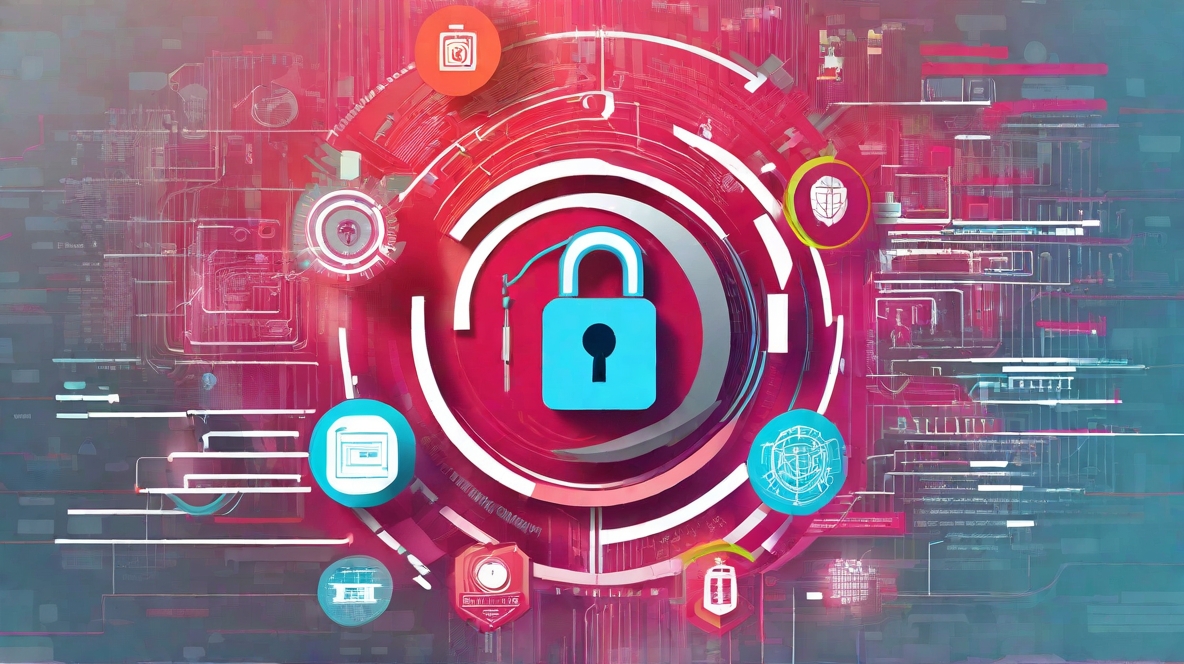Like them or loathe them, all employees will need, at some point, to interact with the support services offered by the IT department. In this series of short articles, we uncover some of the secret workings of the IT department, finding out what is jargon and what is just common sense that can apply to all of us, regardless of our role, work, or profession.
Cybersecurity explained
Welcome to the seventh instalment of our series. Today, we’re focusing on the topic of cybersecurity.
What is cybersecurity, and why does it matter?
Imagine cybersecurity as locking the doors and windows of your house when you leave. You wouldn’t want anyone to get in and steal your valuables. The same principle applies to the digital ‘house’ that is your computer or smartphone.
Cybersecurity is akin to a digital security system for your computer and online activities. It protects your digital assets, such as your personal information and work-related data, from risks such as hacking and phishing scams.
Key elements of cybersecurity:
These include:
- Firewall – Imagine a security guard stationed at a building’s entrance. A firewall functions similarly, scrutinising who or what can access or leave your network to ensure only safe interactions occur. Consider it your initial shield against external threats.
- Antivirus software – Picture your immune system warding off viruses. Antivirus software serves as your computer’s built-in defence mechanism, actively scanning and neutralising harmful files or programs.
- Virtual Private Network (VPN) – Envision a private, secure tunnel through which your data travels. This is especially crucial when using public Wi-Fi, akin to a bustling town square where private conversations should remain private.
- Two-factor authentication (2FA) – Think of it as a secondary lock for your door. After inputting your password, you’ll typically receive a text message with an additional code to provide an extra level of security.
- Phishing awareness – Visualise a fisherman casting a baited hook into a pond, hoping to get a bite. Phishing emails or messages may appear legitimate but are traps set to capture your personal information. Being aware of these deceptive practices can save you considerable hassle.
Useful cybersecurity tips for everyone
- Use strong and unique passwords
Picture the keys to your house; you wouldn’t use a flimsy key that could easily break or be duplicated. In the same way, using strong and unique passwords makes it harder for intruders to gain unauthorised access. Combine upper and lower-case letters, numbers, and special symbols to create a robust password. - Be cautious with email attachments and links
Imagine receiving a letter in the mail that you weren’t expecting. You’d likely be cautious about opening it. Apply the same caution to email attachments and links, especially from unknown sources. Hover over links to see where they lead before clicking, and scan attachments for malware if you’re unsure about the sender. - Be wary of public Wi-Fi
Using public Wi-Fi is akin to having a conversation in a crowded café — you never know who might be listening. Avoid performing sensitive tasks, like online banking, when connected to a public Wi-Fi network. If you must, use a VPN for an extra layer of security. - Stay informed
Knowledge of the latest cyber threats is akin to staying updated with the weather forecast. It helps you prepare for what’s coming. Follow reputable cybersecurity blogs or social media accounts to keep yourself in the loop. - Enable Multi-Factor Authentication (MFA) or Two-Factor Authentication (2FA)
Consider this as adding an extra security checkpoint at an airport. After going through the initial security screening, you sometimes have to pass through additional checks. It might seem cumbersome, but it adds a crucial layer of security. In the same way, enabling MFA or 2FA on your accounts requires a second form of identification beyond just your password. This could be a text message sent to your phone or a biometric method like a fingerprint. Even if someone cracks your password, they’d still need this second piece of information to gain access.
The benefits of good cybersecurity practices
- Data protection – Keeping your digital valuables safe is akin to locking away your jewellery or important documents in a physical safe. By using encryption techniques and secure storage solutions, you can safeguard sensitive information like your medical records or confidential business data from unauthorised access.
- Financial security – Protecting your online bank account is as crucial as guarding a wallet full of cash. With the right cybersecurity measures like strong, unique passwords and two-factor authentication, you can drastically reduce the risk of fraud or identity theft that could otherwise drain your bank accounts or max out your credit cards.
- Operational integrity – A cybersecurity failure can be likened to a broken lock on your front door; anyone can gain access, disrupting your daily activities. For businesses, this can mean service outages that frustrate customers and lead to loss of revenue. Solid cybersecurity protocols ensure the smooth running of personal and professional digital spaces.
- Legal compliance – Meeting cybersecurity guidelines and regulations can save you from hefty fines and legal trouble, much like following the road rules saves you from getting a speeding ticket. Failing to protect customer data in some industries can have severe legal consequences, damaging your finances and reputation.
A look back at the series
This article is the seventh in a series that covers everything from incident and problem management to change, asset, and service level management, as well as the critical subjects of business continuity and disaster recovery.
Each instalment has been crafted to break down complex IT topics into relatable terms and scenarios, making them accessible reads for IT and non-IT folks alike. If any of these areas intrigue you, please check out the previous articles in the series.
Feel free to share your stories and insights. Our next instalment will tackle another topic that impacts us all, so stay tuned.

